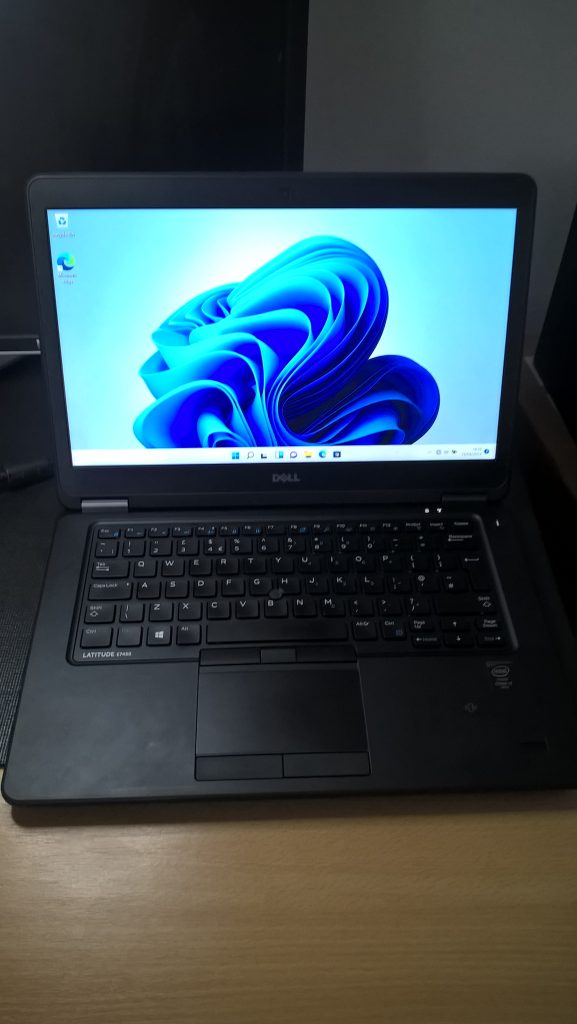Embarking on an IT Journey: Choosing Your First Microsoft Laptop
Hello everyone! If you’re like me and are just stepping into the vast world of information technology, the choice of your first laptop could very well shape your learning experience. With an abundance of options available—especially when it comes to Microsoft laptops—it’s essential to choose wisely. I recently found a Microsoft laptop listed on a marketplace that piqued my interest. Priced similarly to brand new options at retailers like Walmart, I’m left wondering about the viability of purchasing a secondhand device. Should I take the plunge, or would a new laptop be a more prudent decision? This blog post aims to guide beginners like you through the process of selecting a laptop to study for coding and CompTIA certifications.
Understanding Your Needs
Before diving into specifics, it’s crucial to reflect on your primary objectives. As someone starting out in IT, you likely have a plethora of goals. Perhaps you aspire to develop Software applications, create websites, or work with cybersecurity. Your intended use will strongly influence your decision.
The Importance of Specifications
When considering a laptop, understanding the specifications is key. Here are a few aspects to take into account:
-
Processor (CPU): A faster processor will enhance your laptop’s performance, especially when running multiple applications. Opt for at least an Intel i5 or AMD Ryzen 5 to meet the demands of your coding and certification studies.
-
RAM: Memory plays a crucial role in multitasking. Aim for a minimum of 8GB of RAM, but if you can afford it, 16GB is ideal.
-
Storage: SSDs (Solid State Drives) are significantly faster than traditional HDDs (Hard Disk Drives). A 256GB SSD is generally a good starting point for most students.
-
Screen Quality: A Full HD (1920×1080) display ensures a comfortable viewing experience, critical for long hours of coding and study.
-
Battery Life: If you plan to work on the go or during long classes, consider a laptop with at least 7 hours of battery life.
New vs. Used: A Comparative Analysis
Now, let’s delve into the nuances of deciding between a new and a used laptop.
Advantages of New Laptops
-
Warranty and Support: Most new laptops come with warranties that protect you against defects in materials or workmanship. This can be essential for peace of mind, particularly for beginners still learning the ropes.
-
Latest Technology: New laptops typically feature the latest technology, providing better performance and future-proofing.
-
Condition: There’s no wear and tear to worry about with a new device, minimizing the chance of encountering issues.
Drawbacks of New Laptops
-
Cost: New models tend to carry a premium price tag. If you are on a budget, this might not be feasible.
-
Depreciation: A new laptop loses value quickly, especially within the first year of purchase.
Advantages of Used Laptops
-
Affordability: You can often find laptops priced significantly lower than their new counterparts. This is especially attractive when you’re on a tight budget.
-
Value for Money: If you find a used laptop in good condition, you can often get more powerful hardware for the same price as a new, lower-spec device.
Drawbacks of Used Laptops
-
No Warranty: Many used laptops do not come with a warranty, which increases the risk of encountering issues without any recourse.
-
Potential Hazards: Depending on the previous owner’s care, a used laptop could come with problems that might not be immediately obvious.
Evaluating the Offer: What to Look For
If you decide to explore secondhand options, here are practical steps to evaluate the offer effectively.
Research the Model
Before finalizing your decision, look up reviews and specifications of the laptop model in question. Resources like CNET, TechRadar, and user reviews can provide insights into performance, durability, and common issues.
Inspect Before You Buy
If possible, arrange to meet the seller in a public place where you can inspect the laptop thoroughly. Check for:
-
Physical Condition: Look for scratches, dents, or any signs of damage.
-
Battery Health: Inquire about the battery life and do a test run if possible.
-
Functionality: Test all keys, ports, speakers, and the screen to ensure everything operates properly.
Making the Investment: Tips for Buying
If you decide to purchase a secondhand laptop, here are some tips to keep in mind.
Set a Budget
Determine how much you can allocate to your laptop purchase, and stick to that budget. Remember to account for Software, accessories, and possible repairs.
Identify Reputable Sellers
Look into well-established platforms such as eBay, Swappa, or certified refurbished retailers. Ensure that the seller has positive reviews and a good return policy.
Ask About the History
Don’t hesitate to ask the seller detailed questions regarding the laptop’s history, such as:
- “How long have you owned this laptop?”
- “Has it ever been repaired?”
- “Why are you selling it?”
Learning Windows: Transitioning from macOS
As someone moving from a MacBook to a Windows laptop, you may feel a bit daunted at first. Not to worry!
Installing Essential Software
Facilitating your learning should include the installation of certain Software tools. Some recommendations include:
-
Code Editors/IDEs: Install commonly used software such as Visual Studio Code, Sublime Text, or IntelliJ IDEA, depending on your coding interests.
-
CompTIA Study Materials: Make sure to download resources and practice exams for CompTIA certifications. Platforms like CompTIA’s own website, Udemy, and LinkedIn Learning may prove useful.
Familiarizing Yourself with the Interface
Spend a few hours getting acquainted with the Windows interface. The functionality may differ significantly from macOS, given that keyboard shortcuts, settings, and file management methods are unique to both operating systems.
Embracing Online Learning Resources
Additionally, investing in your education through online courses can be beneficial. Many platforms offer free and paid courses that align well with CompTIA certifications and coding languages. Websites such as Coursera, edX, and Codecademy are excellent places to start.
Networking: Building Connections in the IT Community
As you begin your studies, consider joining online forums, groups, or attending local meetups. Engaging with like-minded individuals can not only serve as a motivational boost but also provide valuable insights and support. Websites like Meetup.com or local tech hubs can connect you with community resources and potential mentors.
Conclusion: Make an Informed Decision
In summary, whether you choose a brand new laptop or a secondhand Microsoft device, careful consideration will lead you to the right decision. Focus on what best meets your educational goals, and don’t hesitate to take your time researching options.
While a used laptop can be an excellent entry point into IT, it’s essential to weigh the pros and cons thoroughly. As you dive into coding, CompTIA certificates, and the IT world, remember that the device is merely a tool—it’s your determination and engagement that will pave the way for growth in your new career.
Good luck on your journey, and may you find the laptop that perfectly suits your needs!
Share this content:




Great Insights on Choosing Your First Microsoft Laptop!
Hi there! I thoroughly enjoyed your article on selecting the right Microsoft laptop for beginners in IT. Your guidance on understanding needs and specifications is spot on!
When considering a secondhand laptop, I recommend paying particular attention to the model’s compatibility with Software you plan to use. For example, if you’re aiming to work with certain programming languages or tools, ensure that the OS version on the machine is supported by those applications.
As for processor recommendations, looking into an Intel i5 or AMD Ryzen 5 is good advice, but I suggest also considering newer generations if your budget allows—these tend to handle modern applications more efficiently. Additionally, for those on a tight budget, focusing on RAM first can often yield the most noticeable performance improvements, especially in multitasking scenarios.
If you’re leaning towards a used laptop, utilizing platforms like Gumtree or Facebook Marketplace can provide more localized options. Always ask for a test of the hardware—particularly the SSD speed if it’s an SSD, as performance drops can occur over time. You might also want to check the lifespan of the battery since that’s often overlooked but can greatly affect your experience.